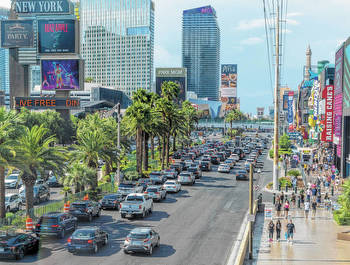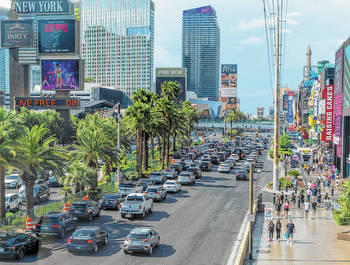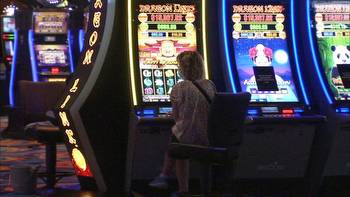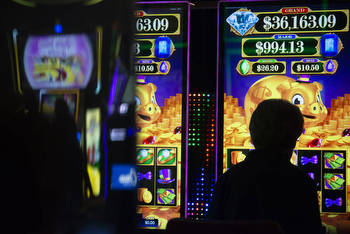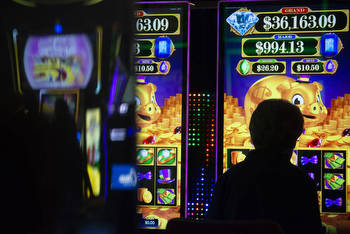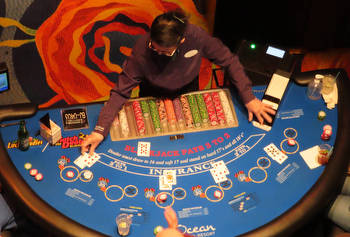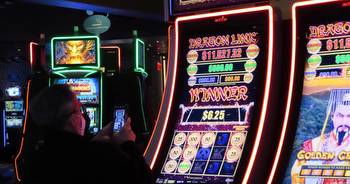Las Vegas Strip continues to lead nation as top gaming revenue generator

The Las Vegas Strip produced the most gaming revenue of any market in the United States in 2023, the American Gaming Association reported Tuesday.
The nation’s commercial casinos generated $66.52 billion — the third straight year of record performance — and a 10 percent increase from 2022. The Strip, with $8.83 billion and 7.2 percent over 2022 easily outpaced the No. 2 market, Atlantic City, New Jersey, which reported $2.86 billion.
Four of the top 20 gaming markets in the U.S. were in Nevada, with the Boulder Strip ($964.7 million) No. 10, Sparks/Reno ($911 million) No. 13, and Downtown Las Vegas ($811.3 million) at No. 17.
The AGA analysis does not include tribal gaming in the 31 states where Indian tribes operate casinos.
In an online briefing Tuesday morning, AGA President and CEO Bill Miller also saluted Las Vegas’ hosting of Super Bowl 58 on Feb. 11, which he called “a historic moment” for the industry.
“Had you asked me 10 years ago or even five years ago, it would be hard to imagine one of the world’s premier sporting events in Las Vegas, Nevada,” Miller said. “It was really a full circle moment for the city and yet another example of how much we’ve transformed as an industry. It shows that today we are broadly embraced by the public and key stakeholders including professional sports, sports leagues and the teams.”
The industry posted record revenue for slot machines ($35.51 billion), table games ($10.31 billion), sports wagering ($10.92 billion) and online gambling ($6.71 billion). Sports wagering, which now includes 37 states and the District of Columbia, was up 44.5 percent over 2022, and iGaming, legal in only six states, was up 22.9 percent.
Nevada’s participation in online poker was not included in the iGaming analysis in which players in Michigan, New Jersey, Connecticut, Pennsylvania, West Virginia and Delaware can play online slot machines and table games. Rhode Island will join that list later this year.
Nevada generated $481.3 million in sports betting, a 7.7 percent increase from a year ago, but the state fell in the rankings from seventh to 10th this year. New York ($1.7 billion), New Jersey and Illinois paced sports betting revenue with each generating more than $1 billion and New Jersey surpassing Illinois for the No. 2 position.
Ohio (No. 4) and Massachusetts (No. 9) as well as Kentucky, Maine and Nebraska were new to the sports-betting market this year and No. 7 Maryland showed a 244 percent increase from last year.
Two casinos with Las Vegas connections were noted as the top revenue generators outside of Nevada.
Resorts World New York in Jamaica, New York, reclaimed its position as the highest grossing casino outside of Nevada and Mississippi, with MGM National Harbor in suburban Washington, D.C., in the No. 2 position.
Miller said the AGA intends to grow on its momentum in 2024.
“While it may be a challenge to continue our recent record rates, our industry’s future is brighter than ever because of the solid foundation we’ve established,” he said. “In priorities for 2024, they stay focused on what matters. To capitalize on the opportunities ahead of us, we must stay resolutely focused on our industry’s priorities. And they are clear — lead responsibly and fight illegal gambling.”
Miller explained that offshore casinos continue to take a bite out of commercial gaming revenue and they generally don’t invest in responsible gambling messaging to players.
Another big drain on commercial gaming is in the proliferation of so-called “skill games” that are illegal and look like slot machines, but operate differently from them.
“We have a defined clear goal, shut down the illegal market,” Miller said. “Our fight is focused on both skill machines and offshore online websites. We’re fighting against skill machines in places like Pennsylvania, Virginia, and Missouri. These manufacturers are spending ungodly sums of money to change the minds of legislators who were once supportive of the legal regulated marketplace,” he said. “And we’re in lockstep with our industry partners to ensure in each of these states that these skill game manufacturers, they either play by the same rules we do or they get shut down.”









